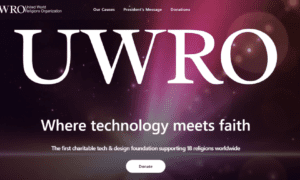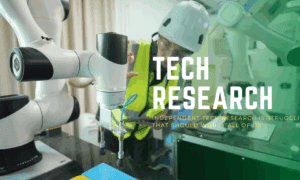
Keith Dart, Founder & CEO of MAK Consulting (middle), next to Tala Michel Issa (Senior Reporter of Arabian Business) and Oscar Wendel (Chairman of Global Stratalogues).
A recent event featuring Keith Dart, a construction veteran with 28 years’ experience, provided a deep dive into his career, construction industry insights, and his increasing ventures in social impact. Hosted by journalist Tala Issa, the on-stage interview and audience Q&A showcased Dart’s dynamic approach to construction, commitment to integrating innovative technologies, and passion for addressing societal challenges.
See Highlights Video of the Global Stratalogues Dinner: https://youtu.be/EynIPUGMf74
A Career Rooted in Innovation and Impact
Dart’s construction career has been marked by significant achievements, including his involvement in Elon Musk’s Boring Company projects in Las Vegas. Dart explained how the Convention Center Loop project gained traction. He credited Musk’s determination to fund the proof-of-concept himself, which ultimately convinced city authorities. Now, the success of this $47 million initiative has led to ongoing tunneling projects connecting the Convention Center to the airport and other key locations.
Reflecting on the potential for similar projects in Dubai, Dart highlighted the importance of local soil conditions for tunneling. He shared examples of projects in Seattle and Italy, where challenges ranged from sandy soils to tunneling through solid rock. While such projects might be feasible in Dubai, he emphasized that technological and environmental factors are critical.
Overcoming Resistance to Change in Construction
A recurring theme is the construction industry’s reluctance to adopt new technologies such as self-consolidating concrete (SCC). Developed in Japan in the 1980s, SCC offers significant advantages by reducing the water content of concrete, improving its strength and workability. However, it took over two decades for this innovation to gain widespread acceptance in the U.S. construction industry.
Dart attributed the resistance to entrenched practices and a fear of the unknown. “In construction, people often say, ‘We have always done it this way.’” Despite the initial cost increase, SCC ultimately revolutionized concrete construction by improving efficiency, reducing labor requirements, and producing stronger structures. The lesson is that the long-term benefits of adopting new technologies far outweigh the short-term challenges.

Guests at the Global Stratalogues Dinner at the Neera Private Member’s Club in Dubai Habtoor City.
Addressing Global Challenges Through Social Impact
Beyond construction, Dart’s passion is projects that foster community and rehabilitation. He shared the story of his adoption of a traumatized child and his experience as a foster parent, which inspired him to launch initiatives to support vulnerable populations.
One of Dart’s latest ventures is WashedByWater.org, an initiative to help families reconnect through meaningful experiences. The program, which began with partnerships in the U.S. and Mexico, focuses on providing opportunities for families in foster care or affected by incarceration to bond in a stress-free environment. “Water heals, water cleanses, water gives life,” Dart explained the meaning behind the name.
Systemic issues in the U.S. prison system mean that a lack of rehabilitation often leads to a high rate of recidivism. Dart advocates for programs like ‘God Behind Bars’ that provide education, job training, and family support to help individuals reintegrate into society. His ventures, combining business acumen with a commitment to societal well-being, reflect his broader vision of building infrastructure and communities.
Global Perspectives and Lessons Learned
During the audience Q&A, Dart fielded questions about construction inefficiencies, collaboration opportunities, and the role of technology in shaping the industry’s future. He addressed the stark productivity gaps in construction, citing studies that rank the industry as one of the least efficient globally, second only to agriculture. Despite technological advancements, Dart noted, many regions—including the U.S. and the Middle East—continue to rely heavily on outdated methods.
Dart stressed the importance of integrating new technologies while learning from past mistakes to bridge this gap. He cited Toronto’s early adoption of gasket technology in the 1990s and its concrete pipe systems as an example of small, cost-effective changes yielding significant long-term benefits. “The key is to start conversations like this,” Dart said, pointing to the event as a platform for sharing knowledge and fostering collaboration.
A Vision for Dubai and Beyond
Dart admires Dubai’s rapid development and status as a global hub for innovation. “What you have done in the last ten years is unparalleled,” he remarked, contrasting Dubai’s progress with the slower pace of development in the U.S. Dart sees immense potential for applying his expertise to projects in the region, particularly in areas like sustainable construction and infrastructure planning.
When asked about his goals in Dubai, Dart outlined his interest in building relationships and sharing best practices to help avoid the mistakes made in other parts of the world. He also offered to connect local developers with his extensive network of industry experts, emphasizing his collaborative approach. “If I do not have the answers, I guarantee someone in my network does,” he said.
Dart’s engaging presentation and candid responses offered a rare blend of technical expertise, practical insights, and heartfelt storytelling. Whether discussing the intricacies of tunneling, the challenges of implementing new technologies, or the importance of social impact, he demonstrated a deep commitment to making a difference.
As the session concluded, Dart left the audience with a powerful message: “Look at the three fingers pointing back at you,” he said, referencing his philosophy of self-accountability. When you see something that needs fixing, ask yourself, “What can I do about it?”
Dart’s entrepreneurial spirit, industry expertise, and compassion inspires construction professionals to drive meaningful change—not just in their projects but in the lives of those they touch.
About the Global Stratalogues
 The Global Stratalogues is a series of high-level, small, closed-door, non-commercial roundtables and dinners that bring together policymakers, private sector leaders, and academia from across geographies and disciplines in a think-tank setting. The Global Stratalogues unites the world’s most innovative and influential people across industry sectors and geographies to explore groundbreaking research, apply cutting-edge technology, and shape policy.
The Global Stratalogues is a series of high-level, small, closed-door, non-commercial roundtables and dinners that bring together policymakers, private sector leaders, and academia from across geographies and disciplines in a think-tank setting. The Global Stratalogues unites the world’s most innovative and influential people across industry sectors and geographies to explore groundbreaking research, apply cutting-edge technology, and shape policy.


































